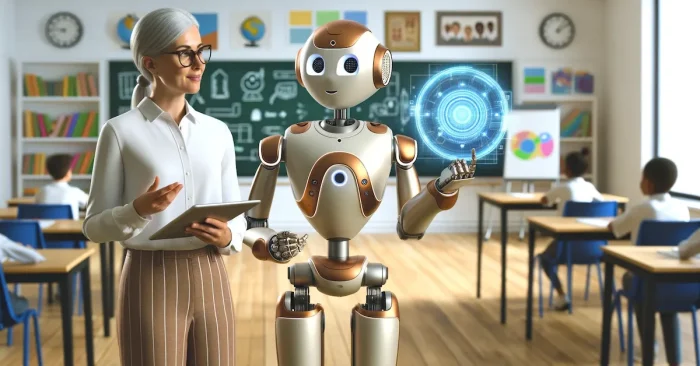Introduction to AI Learning Assistants
AI Learning Assistants are advanced digital tools that leverage artificial intelligence, machine learning, and natural language processing to support learners in their educational journey. These assistants provide personalized guidance, tutoring, and content recommendations based on a student’s learning style, pace, and areas of improvement. By integrating with digital platforms, AI learning assistants can help users organize study schedules, generate notes, answer questions, and even provide real-time feedback. They are increasingly used in schools, universities, e-learning platforms, and professional training programs, making learning more efficient, engaging, and tailored to individual needs.
Importance of AI Learning Assistants
The traditional education system often struggles to provide personalized attention to every student due to large class sizes and limited resources. AI learning assistants address this challenge by offering individualized support, allowing students to progress at their own pace. They provide adaptive learning paths, ensuring that concepts are mastered before moving on to more advanced topics. Additionally, AI assistants enhance engagement by offering interactive content, quizzes, and gamified learning experiences. For educators, these tools provide insights into student performance, highlight areas that need improvement, and reduce the time spent on administrative tasks, thereby improving overall learning outcomes.
Benefits of Using AI Learning Assistants
AI Learning Assistants provide multiple benefits for students, educators, and institutions. They offer personalized learning experiences tailored to individual needs, helping students grasp concepts more effectively. AI assistants save time by generating study materials, notes, and summaries automatically. They provide instant answers to queries, enabling continuous learning without delays. Many AI tools offer multilingual support, making learning accessible to a global audience. Educators benefit from detailed analytics, tracking student progress and identifying areas where additional support is needed. Overall, AI learning assistants improve knowledge retention, engagement, and academic performance while promoting self-directed learning.
Top AI Learning Assistant Tools
Several AI-powered learning assistant tools have gained popularity for their effectiveness in enhancing education:
Google AI Tutor
Google AI Tutor provides interactive lessons, real-time feedback, and personalized learning paths for students. It integrates with Google Classroom and supports multiple subjects.
IBM Watson Education
IBM Watson Education offers AI-driven tutoring, content recommendations, and adaptive learning solutions. It helps educators personalize learning experiences for students and track performance.
Socratic by Google
Socratic is a mobile app that assists students by answering questions, explaining concepts, and generating study materials using AI and machine learning technologies.
Querium AI
Querium provides step-by-step tutoring in STEM subjects, using AI to identify student weaknesses and suggest personalized exercises to improve understanding and problem-solving skills.
Knewton Alta
Knewton Alta is an adaptive learning platform that delivers personalized course content, practice exercises, and assessments based on individual learning patterns, enhancing mastery of concepts.
How AI Learning Assistants Work
Data Analysis and Personalization
AI learning assistants analyze student interactions, performance, and preferences to create personalized learning paths. They identify strengths and weaknesses to tailor lessons accordingly.
Content Recommendation
Using machine learning algorithms, AI assistants recommend relevant study materials, exercises, and resources to support concept mastery and ensure effective learning progression.
Interactive Learning
AI tools provide quizzes, simulations, and gamified learning experiences to engage students and reinforce understanding. Interactive content enhances retention and motivation.
Real-Time Feedback
AI learning assistants offer instant feedback on assignments, quizzes, and problem-solving exercises, helping learners correct mistakes immediately and reinforce learning effectively.
Integration with Educational Platforms
These assistants integrate with learning management systems, digital textbooks, and online courses to provide a seamless learning experience and centralized access to educational resources.
Applications of AI Learning Assistants
AI learning assistants have applications across various educational contexts. In schools, they provide tutoring support, help with homework, and assist teachers in classroom management. In higher education, they support students in understanding complex subjects, preparing for exams, and accessing research materials. Online learning platforms utilize AI assistants to guide learners through courses, provide adaptive assessments, and generate personalized study plans. Professionals and corporate trainees use AI learning assistants for skill development, upskilling, and continuing education. Their versatility makes AI learning assistants an indispensable tool for enhancing learning efficiency and engagement across all levels of education.
Frequently Asked Questions (FAQs)
What is an AI Learning Assistant?
An AI Learning Assistant is a digital tool that uses artificial intelligence to provide personalized tutoring, content recommendations, and interactive learning support for students and professionals.
Which AI tools are best for learning assistance?
Top AI learning assistants include Google AI Tutor, IBM Watson Education, Socratic by Google, Querium AI, and Knewton Alta, all of which offer personalized and adaptive learning solutions.
Can AI learning assistants replace human teachers?
AI assistants support learning and provide personalized guidance, but they complement rather than replace human teachers, offering scalable assistance and enhanced learning experiences.
How do AI learning assistants personalize education?
They analyze student data, performance, and learning patterns to adapt content, suggest relevant resources, and create individualized study plans for effective learning.
Are AI learning assistants suitable for all subjects?
Yes, AI learning assistants support a wide range of subjects, including STEM, humanities, languages, and professional training programs, making them versatile across educational contexts.






